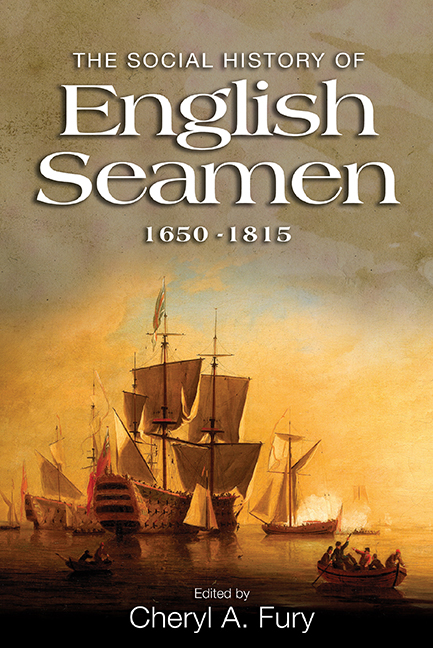Book contents
- Frontmatter
- Dedication
- Epigraph
- Contents
- List of illustrations
- List of contributors
- List of abbreviations
- Introduction
- 1 The Development of Sea Power, 1649–1815
- 2 Naval Seamen, 1650–1700
- 3 Officers and Men of the Navy, 1660–1815
- 4 The Impact of Warfare on Naval Wives and Women
- 5 Officers, Shipboard Boys and Courts Martial for Sodomy and Indecency in the Georgian Navy
- 6 Health Provision in the Royal Navy, 1650–1815
- 7 The Origins and Careers of English Merchant Seamen in the Late Seventeenth and Early Eighteenth Centuries
- 8 Private Enterprise, Public Policy and the Development of Britain's Seafaring Workforce, 1650–1815
- 9 Jack Tar's Food: Masculine Self-fashioning in the Age of Sail
- 10 Pirates, Privateers and Buccaneers: The Changing Face of English Piracy from the 1650s to the 1720s
- Conclusion
- Bibliography
- Index
7 - The Origins and Careers of English Merchant Seamen in the Late Seventeenth and Early Eighteenth Centuries
Published online by Cambridge University Press: 11 August 2017
- Frontmatter
- Dedication
- Epigraph
- Contents
- List of illustrations
- List of contributors
- List of abbreviations
- Introduction
- 1 The Development of Sea Power, 1649–1815
- 2 Naval Seamen, 1650–1700
- 3 Officers and Men of the Navy, 1660–1815
- 4 The Impact of Warfare on Naval Wives and Women
- 5 Officers, Shipboard Boys and Courts Martial for Sodomy and Indecency in the Georgian Navy
- 6 Health Provision in the Royal Navy, 1650–1815
- 7 The Origins and Careers of English Merchant Seamen in the Late Seventeenth and Early Eighteenth Centuries
- 8 Private Enterprise, Public Policy and the Development of Britain's Seafaring Workforce, 1650–1815
- 9 Jack Tar's Food: Masculine Self-fashioning in the Age of Sail
- 10 Pirates, Privateers and Buccaneers: The Changing Face of English Piracy from the 1650s to the 1720s
- Conclusion
- Bibliography
- Index
Summary
‘When one goes into Rotherhithe and Wapping, which places are chiefly inhabited by sailors, a man would be apt to suspect himself in another country. Their manner of living, speaking, acting, dressing and behaving, are so very peculiar to themselves.’ This observation by Sir John Fielding certainly has some truth in it. Sailors were indeed ‘peculiar to themselves’, but this does not mean that they cannot be studied by the social historian. They formed one of the largest occupational groupings in late seventeenth- and early eighteenth-century England with numbers rising from rather less than thirty thousand in 1660 to rather more than fifty thousand in 1770, not counting those serving in the Royal Navy. Where did these men come from and how were they trained for their very demanding occupation? How long did they serve at sea and what chances had they of promotion during their maritime career?
Such questions are difficult to answer for any trade in early modern England, since the government was not in the habit of making detailed inquiries into such matters. Some information can be gleaned from the fairly small numbers of surviving ships’ papers, such as logbooks, muster books and account books, and also from the journals and memoirs of contemporary sailors and travellers, especially Edward Barlow whose fascinating Journal opens a window on life at sea in the late seventeenth century. However the most useful indications have been obtained from depositions given by witnesses in the High Court of Admiralty. The majority of deponents in this court were sailors and these men (and boys) were quite often asked to say where they were born, how old they were, how long they had been at sea, what they had been doing for the last three, five or seven years, and occasionally other questions which have produced answers useful to the social historian in that they can to a certain extent be quantified. Information of this sort was most detailed in the years between 1665 and 1720 and especially between 1685 and 1705, which means that developments after these dates, such as the rise of Liverpool, cannot be reflected in the analysis below.
- Type
- Chapter
- Information
- The Social History of English Seamen, 1650-1815 , pp. 129 - 146Publisher: Boydell & BrewerPrint publication year: 2017

